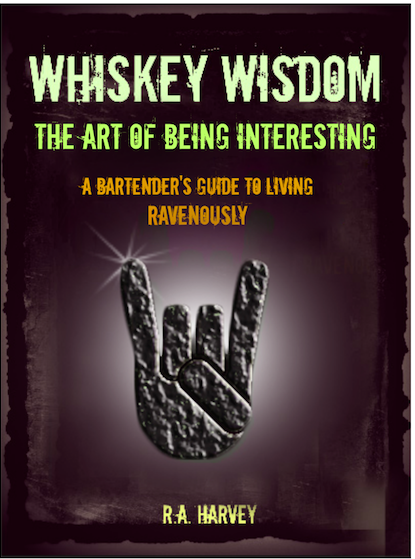This is excerpted from Chapter 25 of my forthcoming.

Chapter 25
Howard Zinn, who was not a historian, is the author of a cultic classic called A People’s History of the United States, which is a tour-de-force of historical misinformation, sloppy scholarship, and outright prevarications. This perhaps partially explains why on the subject of history and the role of the historian Howard Zinn once wrote:
“History is not about understanding the past [but about] changing the future.”
I know of no serious historian who would agree with that statement, which strikes me now as a pretty good definition of propaganda.
Given that Howard Zinn was not, by any reasonable standard imaginable, an actual historian, it is more than a little paradoxical, then, that this same Howard Zinn authored a book entitled A People’s History of the United States, which is now a staple in American colleges and high-schools and junior-high-schools all across the country, and for which reason I’m including a mention of it here, in this book: because prevarications and misinformation on this level, influencing countless young minds, must be countered relentlessly, forcefully, intellectually, factually.
It is, for example, a poorly known fact that Howard Zinn – who grew fabulously wealthy in the United States he hated: rich and famous here because people willingly and voluntarily paid him money in exchange for his book of misinformation (a process I fully support, incidentally, caveat emptor), loading him up with the dollar bills he claimed to hate, via the laissez-faire system he explicitly antipathized (Howard Zinn was a lifelong member of the Communist Party of the United States [CPUSA], though never, to my knowledge, allowed his money to in any way be expropriated and redistributed, as the CPUSA dictates would have it), who, indeed, never left the America he hated so much, dying here, an old man, famous and venerable, in 2010 – was a vocal defender of the Stalin-era Soviet Union and also the Mao Zedong-era China:
“China,” wrote Howard Zinn, in A People’s History, “was in the hands of a revolutionary movement, the closest thing, in the long history of that ancient country, to a people’s government, independent of outside control” — this in praise of Chairman Mao, the murderer, who has the blood of approximately 100 million on his hands. (Noam Chomsky, meanwhile, who also propagandized for Pol Pot’s genocidal Khemer Rouge, called Mao’s China “a just society,” and, perhaps anticipating the locavore fad we’re now enjoying, also described Mao’s blood-red China as “a new society in which very interesting and positive things happened at the local level.”)
I want to at this point remind all readers and respectfully ask readers never to forget that Joseph Stalin and Mao Zedong were, in terms of sheer numbers of people killed, two of the most murderous tyrants in world history.
It is a poorly known fact, as well, that Howard Zinn was a huge supporter of the homophobic dictator Fidel Castro who, wrote Howard Zinn, “set up a nationwide system of education, of housing, of land distribution to landless peasants.” Zinn unfortunately neglects to even mention, let alone elaborate upon, Castro’s decades and decades of systematic repression, the forced international isolation, the horrific poverty created and fostered by him, the grinding oppression, and of course the mass executions of regime opponents, intellectuals, journalists, and homosexuals.
Why does Howard Zinn neglect to mention all of that?
To ask the question is, I believe, to answer it.
In the opening of his bestselling book A People’s History, Howard Zinn begins with this description of Christopher Columbus:
“So, approaching land, they were met by the Arawak Indians…. The Arawaks lived in village communes, had developed agriculture of corn, yams, cassava. They could spin and weave, but they had no horses or work animals. They had no iron, but they wore tiny gold ornaments in their ears.”
Here is how Hans Koning described Christopher Columbus, in a book titled Columbus: His Enterprise: Exploding the Myth, which appeared the year before Howard Zinn’s book was published:
“The population were Arawak Indians … a people who had developed agriculture (corn, yams, cassava), who could spin and weave, but had no iron, no horses, no beasts of burden…. Their society seems to have been based on village communes where most property was jointly held…. Some of these people wore little gold ornaments in their ears and noses.”
Neither Koning’s book nor Zinn’s book cite any sources, which is unheard of for a work of history which purports to contain authentic scholarship, and neither men were, I repeat, actual historians.
Here, however, is the main thing I wish to point out now.
Among the most famous passages in all of Howard Zinn’s literature is the opening paragraph of A People’s History, wherein readers are treated to a loose transcription of Christopher Columbus’s log (or diary). Zinn’s transcription, which is again following the lead of Hans Koning’s description in the book that appeared just the year before Zinn’s, introduces passages with leading sentences and then, in an appalling display of academic dishonesty, omits full sentences — at which point proceeding to quote completely out of context and striking out all passages from Columbus’s log that controvert his pre-formulated genocidal narrative.
Christopher Columbus, whatever you think you know of him, wasn’t, for the record, guilty of genocide.
In his log entry for October 12, 1492, Christopher Columbus wrote:
“I warned my men to take nothing from the people without giving something in exchange.”
Both Howard Zinn and Hans Koning completely omitted this passage.
But the worst is still to come.
In the same paragraph of A People’s History — the opening paragraph — Howard Zinn, purporting to transcribe Columbus’s log, writes the following. I’m quoting Howard Zinn precisely – and by that I mean I’m including Zinn’s crucial use of ellipses:
“They have no iron. Their spears are made out of cane…. They would make fine servants…. With fifty men we could subjugate them all and make them do whatever we want.”
That is, I say again, an exact quote from Chapter 1, paragraph 1, of A People’s History of the United States, by Howard Zinn. This passage has been cited countless times over the years and decades, and it’s not a stretch to say that this Howard Zinn passage has had and continues to have real societal ramifications.
It is a total deception and fraud.
Please look now at what Howard Zinn omitted, without any mention of omitting it, and look what he replaced with ellipses. I quote from Christopher Columbus’s log:
“I saw some who bore marks of wounds on their bodies, and I made signs to them to ask how this came about, and they indicated to me that people came from other islands, which are near, and wished to capture them, and they defended themselves. And I believed and still believe that they come here from the mainland to take them for slaves.”
This translation comes from a well-known scholar named Robert Henderson Fuson – perhaps the most widely used translation of Columbus’s logs – who explains this passage further:
“The cultural unity of the Taino” (a more specific name of the tribe which Zinn calls the Arawaks [something like “Native American Indians” verus “Apache Indians”]) “greatly impressed Columbus. Those who see Columbus as the founder of slavery in the New World are grossly in error. This thought occured to Samuel Eliot Morison (among many others), who misinterpreted a statement made by Columbus on the first day in America, when he said ‘They (the Indians) ought to be good servants.’ In fact, Columbus offered this observation in explanation of an earlier comment he had made [in his logs], theorizing that the people from the mainland came to the islands to capture these Indians as slaves because they were so docile and obliging.”
The boldface emphasis is mine.
Zinn’s use of ellipses between the sentences “They would make fine servants” and “With fifty men we could subjugate them all and make them do whatever we want” is in actuality Zinn’s linking together two sentences which are not even in the same paragraph.
As a matter of fact, they’re not even in the same entry date in Christopher Columbus’s log. They’re two days apart.
The truth is that Christopher Columbus, who was a devout Catholic at a time when Spain was under Muslim siege – the Muslims had long-ago conquered the Iberian Penisula, and 1492 was the very year that the crucial battle of Granada occurred – the truth, I repeat, is that Christopher Columbus, who was no saint or angel, but a soldier, sailor, and missionary, was driven to save Christianity. He therefore made it his mission to counter Muslim conquest and to, in turn, spread Christianity in order to combat Muslim rule.
Christopher Columbus was a man motivated, like all missionaries, by his drive to convert people to his faith. Which is why Christopher Columbus also wrote in his log, about these same natives – and this is something else you find nowhere mentioned in any of Howard Zinn’s literature:
“I want the natives to develop a friendsly attitude toward us because I know that they are a people who can be made free and converted to our Holy Faith more by love than by force.”
Howard Zinn’s famous passage is outrageously deceptive in its selective quoting, and Howard Zinn, who has influenced so many millions of young minds, is arrantly guilty of context-dropping and academic fraud – omissions which are crafted precisely to convince all readers that Christopher Columbus had no care or concern for the physical or mental well-being of the natives but was only driven by “a frenzy for gold,” as Zinn says, which then led Columbus to enslave the natives for profit – when, that is, he wasn’t hunting them down with dogs, since they could not supply him with vast treasures of gold, from mines which existed only Columbus’s imagination.
Howard Zinn writes:
“The Indians had been given an impossible task. The only gold around was bits of dust garnered from the streams. So they fled, were hunted down with dogs, and were killed.”
In response to which, the anthropologist Carol Delaney, also translator of Columbus’s logs, writes this:
“Columbus wanted to launch a new Crusade to take back the Holy Land from the infidels (the Muslims). This desire was not merely to reclaim the land of the Bible and the place where Jesus had walked; it was part of the much larger and widespread, apocalyptic scenario in which Columbus and many of his contemporaries believed.”
In reference to Columbus’s October 12, 1492, entry, Carol Delany writes this:
“In my first reading of the diary I could not understand why he seemed so driven to find gold. But this understanding changes when one realizes that finding the gold was necessary not only to repay the people who had invested in the voyage (and to induce them to finance another), [but was also] essential if he was ever to finance another Crusade. Today, we might disapprove of that motive, but at the time [when the Moors were taking over, with extreme force and violence, much of Europe] it was felt to be a worthwhile and Christian duty.”
Carol Delany says this as well:
“Columbus strictly told the crew not to do things like maraud, or rape, and instead to treat the native people with respect. There are many examples in his writings where he gave instructions to this effect. Most of the time when injustices occurred, Columbus wasn’t even there. There were terrible diseases that got communicated to the natives, but he can’t be blamed for that.”
The natives also gave back plenty of diseases to the Europeans.
It is also a fact that Christopher Columbus never owned a slave.
It is a fact that Christopher Columbus adopted an indigenous child and made this child his son, and Howard Zinn does not mention this.
It is a fact that Christopher Columbus did not commit genocide.
I’m no zealous admirer of Christopher Columbus, nor am I his defender. That is not my primary point here. I believe in accuracy and historical truth, of which Howard Zinn and his detestable book make a mockery, and that — historical truth and historical accuracy — is what I seek to defend.
The fact is that Howard Zinn’s gurus Mao Zedong, Fidel Castro, and Ho Chi Minh have far more blood on their hands than Christopher Columbus ever did, and I will leave you with a quote from an excellent historian named Oscar Handlin, of Havard University, who’s meticulous in his research and mind-spinningly well-read, and who in 1980 reviewed Howard Zinn’s book A People’s History of the United States, before Zinn’s book developed its cultic and slavish following:
It simply is not true that ‘what Columbus did to the Arawaks of the Bahamas, Cortez did to the Aztecs of Mexico, Pizarro to the Incas of Peru, and the English settlers of Virginia and Massachusetts to the Powhatans and the Pequots.’ It simply is not true that the farmers of the Chesapeake colonies in the seventeenth and early eighteenth centuries avidly desired the importation of black slaves, or that the gap between rich and poor widened in the eighteenth-century colonies. Zinn gulps down as literally true the proven hoax of Polly Baker and the improbable Plough Jogger, and he repeats uncritically the old charge that President Lincoln altered his views to suit his audience. The Geneva assembly of 1954 did not agree on elections in a unified Vietnam; that was simply the hope expressed by the British chairman when the parties concerned could not agree. The United States did not back Batista in 1959; it had ended aid to Cuba and washed its hands of him well before then. ‘Tet’ was not evidence of the unpopularity of the Saigon government, but a resounding rejection of the northern invaders.
Dr. Oscar Handlin, The American Scholar, 49, 1980.







